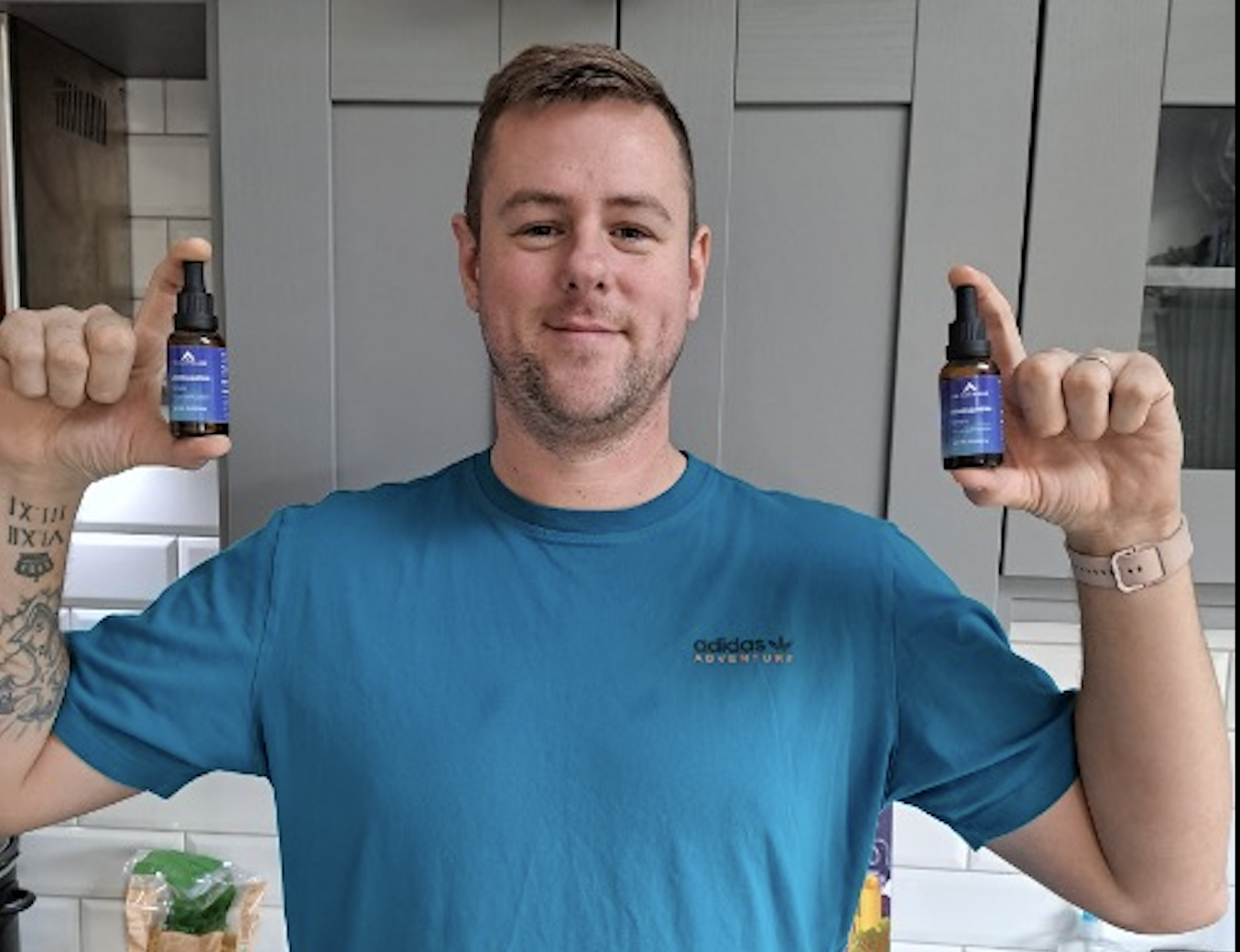Many people find CBD oil can have a relaxing and therapeutic effect. But how long it takes to work varies from person to person, everyone is different. The quality of your CBD product will also play a part. So, how long does CBD oil take to work?
Before answering that in this article, we need to talk about what CBD oil is.
What is Cannabidiol & How Does this Product Benefit the Body?
CBD oil, or CBD, is a derivative of the cannabis plant. The best known of these chemical compounds to come from cannabis is tetrahydrocannabinol or THC. While THC is highly psychoactive and can be toxic, CBD is not.
CBD does share some therapeutic properties, however due to CBD being classified as a food supplement (similar to vitamins & calcium) no medicinal claims can be made about CBD. Further research studies are needed to confirm claims of relief from various health symptoms as all studies on CBD and cannabinoids have suggested in their concluding comments.
If you do decide to try CBD products as a food supplement there a range of factors to consider before purchasing like quality ingredients and product testing. Don’t just buy anything from anywhere. Make sure to do all the research you can when looking for CBD topicals like cream, balm or CBD tinctures and their carrier oil.
But first, let’s take a look at what the Endocannabinoid System is.
How Does CBD Affect the Endocannabinoid System in People?
In addition to knowing what CBD oil is, it’s important to understand the health effects its ingredients can have on the Endocannabinoid System.
At its simplest, the Endocannabinoid System is the cellular system that’s critical for managing body functions like:
- Sleep
- Moods and emotions
- Memory
- Reproduction
While neurotransmitters, like dopamine, send messages to the body to tell it how to react in the moment, Endocannabinoids are triggered after the fact. They begin in postsynaptic cells and run backwards across the synaptic membrane to the presynaptic cells to tell the body to slow down or speed up.
Clinical Endocannabinoid Deficiency Syndrome (CECD) arises when the Endocannabinoid cells don’t function properly. Because they play such a crucial role in controlling the body’s response, that can cause problems.
In this way CBD oils and other CBD products have been the subject of many testimonials and claims over the last few years regarding potential health benefits. Such anecdotal claims link CBD intake to helping with skin, stress, sleep, anxiety and pain among others.
It is important to note however that such claims require more clinical trial results and research to be confirmed as fact. The same goes for side effects and symptoms of taking CBD products. Little or none are reported anecdotally, negative side effects that is, but research needs to clarify this officially.
Right now CBD is sold only as a food supplement and any medicinal claims or otherwise are unauthorised by the HPRA in Ireland. CBD can be added like any vitamin or mineral to your food diet to provide extra nutrients like omega’s and iron to your body. The cannabinoids present in CBD oils are also a source of nutrients for both men and women of any age.
While CBD oil isn’t strictly medical, it can still mimic some of the responses of Endocannabinoid cells and help the body relax. This effectively mimics the ebb and flow of functional Endocannabinoid cells. So that’s what CBD oil does, but how long before you feel the effects of it?
How Quickly Does it Take CBD Oil to Work?
If you’re new to taking a CBD oil product, it may take a while for you to start noticing the impact it has on your body. That’s because it can take up to a week for CBD to build up in your system. This mirrors the pace of well known health food supplements like calcium, Vitamin D, Vitamin C and multivitamins which can all take some time to affect immune system function and bone health for example.
Consequently, we recommend that new users take the drops from a CBD oil tincture daily for the first three weeks. This gives it time for your body to build up a routine amount of it. Not only that, but it allows you to get a sense of how it’s affecting you.
After that, you can start relaxing dosages. You can even miss out on a daily dose to help judge the process and what method works best for your innate body chemistry.
However, the rapidity with which CBD oil impacts you varies based on:
- Dosage
- Frequency of dosage
- Method of use
Dosage
We recommend people new to CBD oil start with between 20-30 mg of CBD daily and increase their dosage over time. You may find that, over time, you need higher dosages to feel the effects, everyone is different. The difference between people and cannabis products begs the need for further clinical research to be carried out in terms of human cannabinoid pharmacokinetics as suggested in one unbiased study.
Alternatively, if a subsequent dose is still in your system, you may feel the effects of CBD oil faster than when you started using it. If you are unsure about taking a CBD oil tincture or other CBD products then be sure to ask your doctor in advance of purchasing.
Dosage Frequency
Another thing that impacts how long CBD oil takes to work is how often you take it. With regular use, it builds up in your system and combines with the new dose, heightening the amount of CBD oil in your body.
The larger the dose, the longer it stays around, and the faster you feel its effects. Conversely, infrequent dosages will take longer to work because there’s less CBD oil in your system.
Ways & Methods to Use CBD
Not only that but how you take CBD matters. Because CBD oil is placed under the tongue, its rate of absorption is better as it goes directly into the bloodstream. Your body responds faster to it than to other methods of CBD consumption, such as:
- Capsules – This form has to be absorbed by the body by passing through the digestive system. This way takes longer but is still effective.
- Cream – This form of CBD product can be applied directly to the skin and is absorbed in this way.
- Vaping – This form of CBD intake involves risk as it does relate
Example of How to Add CBD Products to your Diet
CBD oil or other products can be added to your diet an extra food supplement and intake of nutrients. To help understand how long CBD oil takes to work, let’s consider an example which is relevant to most if not all:
Our 10% CBD oil has 5mg of CBD per drop. With that in mind, we encourage new users to begin by taking five drops or 25mg of CBD. You can then increase the dosage gradually. We suggest adding an extra drop each week.
When you start feeling the full impact of the CBD oil, you’ve reached the optimum dosage for you and can stop altering your dose.
However, because how long CBD oil takes to work varies from person to person, some people notice the benefits immediately. That’s why 25mg makes an ideal first experimental dose. Moreover, gradually increasing the dosage prevents you from unwittingly using more CBD oil than you need.
Another option is to add CBD or hemp cream to your health routine. Hemp cream is one of many CBD topicals which is applied directly to the skin on the desired area of the body.
Conclusion
How long CBD oil takes to work varies from person to person. It’s affected not only by how you consume the CBD but on things like:
- Metabolism
- Body type
Dosage also plays a critical role in how long it takes for CBD oil to work, and that’s why we recommend starting with a 25mg dose.
However you take CBD, and whatever percentage you start with, remember to give it time. CBD oil becomes faster and more effective as more of it builds up in your body. That means it may take as long as three weeks for the CBD oil to work and for you to feel its effects.





















